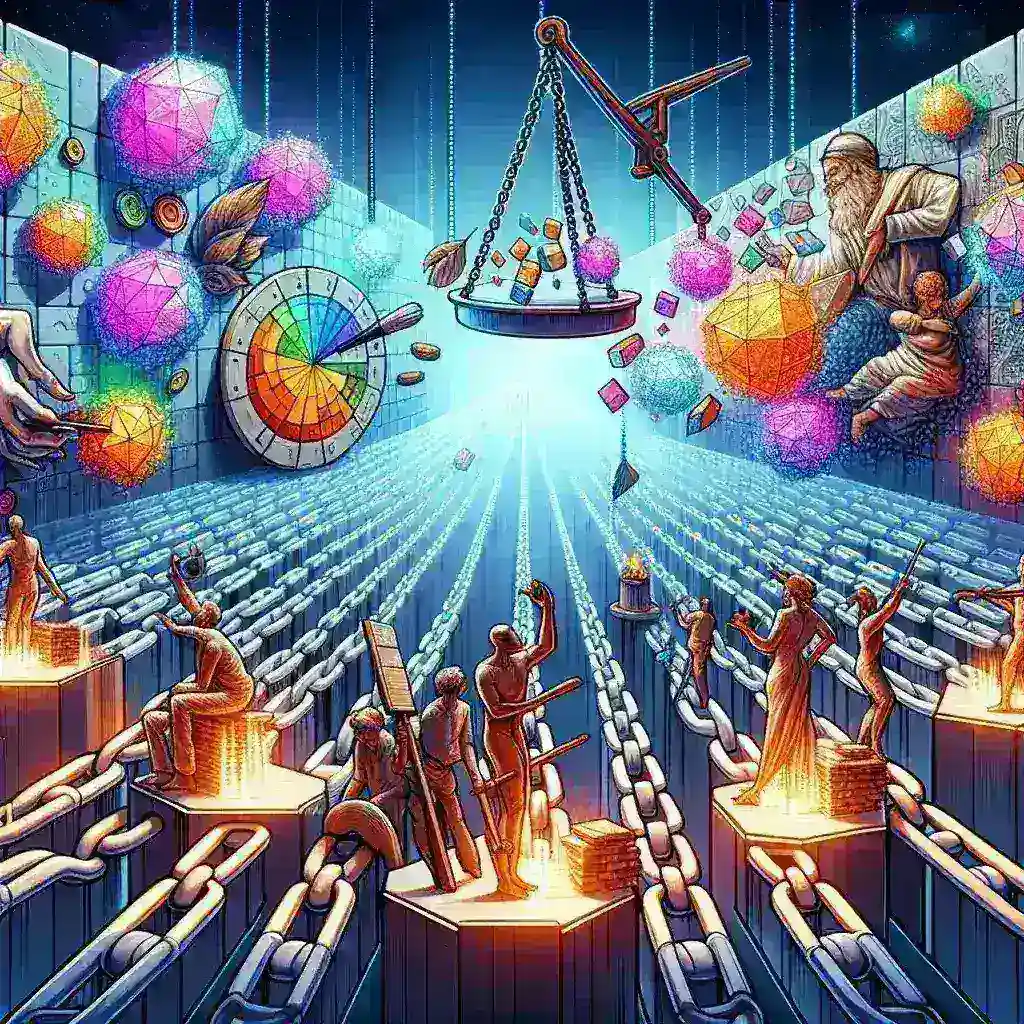Introduction
The digital age has transformed the way we create, share, and monetize content. However, with this transformation comes a challenge: ensuring that digital creators receive fair compensation for their work. Enter the blockchain-based royalty system, a revolutionary approach that promises to redefine how royalties are distributed in the creative industry.
Understanding the Blockchain Technology
Blockchain technology, at its core, is a decentralized and distributed ledger system that records transactions across multiple computers in such a way that the registered transactions cannot be altered retroactively. This technology provides a secure, transparent, and immutable way to track ownership and transactions, making it ideal for various applications, including digital content distribution.
Key Features of Blockchain
- Decentralization: Eliminates the need for a central authority, reducing the risk of fraud and manipulation.
- Transparency: All transactions are visible and verifiable by any participant in the network.
- Security: Data is encrypted and stored across multiple nodes, enhancing security against unauthorized access.
- Smart Contracts: Self-executing contracts with the terms of the agreement directly written into code, facilitating automated royalty payments.
The Need for Fair Compensation in the Digital Space
In the traditional creative economy, artists, musicians, writers, and other content creators often struggle to receive fair compensation for their work. The rise of digital platforms has created a complex web of intermediaries—publishers, record labels, streaming services—each taking a cut of the profits. This often leaves creators with a fraction of what they deserve.
Statistics on the Compensation Gap
According to recent studies, over 70% of digital creators feel that they are under-compensated for their work. A survey by a leading creative industry organization revealed that 65% of musicians do not earn a sustainable income from streaming services, highlighting the urgent need for a new system.
How Blockchain-based Royalty Systems Work
Blockchain-based royalty systems aim to simplify and enhance the compensation process for digital creators. Here’s how they work:
1. Registration of Work
Creators register their work on a blockchain platform. This process involves creating a unique digital fingerprint of the content, ensuring that ownership is clearly established.
2. Smart Contracts for Royalty Distribution
Once the work is registered, smart contracts automatically execute royalty payments whenever the content is used or purchased. For instance, when a song is streamed, the smart contract triggers payment to the artist’s wallet, ensuring they receive their fair share instantly.
3. Transparency and Tracking
Blockchain allows for real-time tracking of how often a piece of content is used. This transparency ensures that creators can verify their earnings and is crucial for building trust within the creative community.
Benefits of a Blockchain-based Royalty System
Implementing a blockchain-based royalty system offers several advantages:
- Fair Compensation: Creators receive a larger percentage of the profits generated from their work.
- Reduced Intermediaries: By cutting out middlemen, the transaction costs are minimized, allowing for more funds to reach the creators.
- Global Reach: Blockchain operates on a global scale, allowing creators to monetize their work in international markets without unnecessary barriers.
- Instant Payments: Smart contracts enable immediate payment upon content usage, eliminating delays commonly associated with traditional royalty distribution.
Challenges and Considerations
Despite its potential, a blockchain-based royalty system is not without challenges:
1. Technological Barriers
Not all creators are tech-savvy, and there may be a learning curve in understanding and adopting blockchain technology.
2. Regulatory Hurdles
As with any emerging technology, regulatory issues may arise, requiring adherence to local and international laws regarding digital content and payments.
3. Market Adoption
For blockchain-based royalty systems to be effective, widespread adoption across platforms and industries is essential.
The Future of Digital Creators in a Blockchain World
As more digital creators explore blockchain technology, the potential for a fairer and more equitable creative economy becomes increasingly plausible. Industry experts predict that within the next decade, a significant portion of digital transactions may rely on blockchain systems for royalty distribution.
Expert Opinions
“Blockchain technology has the potential to revolutionize the creative economy. It empowers creators by ensuring they are compensated fairly and transparently for their work,” says Dr. Jane Smith, a blockchain expert and advocate for digital rights.
Real-World Examples
Several platforms are already implementing blockchain technology to facilitate fair compensation:
- Audius: A decentralized music streaming platform that allows artists to publish their music and receive payments directly from listeners.
- Myco: This platform enables artists to sell their work directly to consumers while ensuring they receive a higher percentage of the sales.
Conclusion
The blockchain-based royalty system represents a significant shift towards fair compensation for digital creators. By leveraging the power of blockchain technology, creators can reclaim control over their work, ensuring they are paid fairly for their contributions to the digital landscape. As the world continues to embrace this innovative approach, the future looks promising for artists, musicians, writers, and other digital creators seeking fair compensation in an increasingly digital economy.

